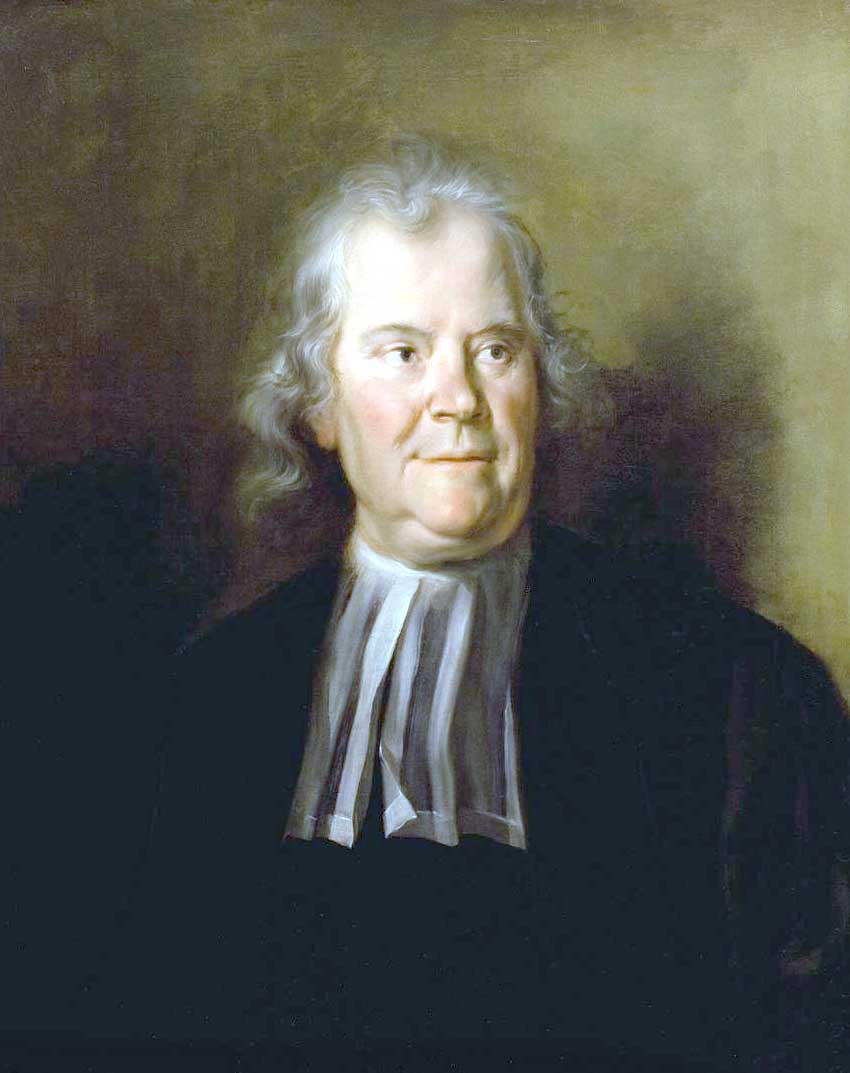Herman Boerhaave
Area:
Medicine, chemistry
Website:
http://www.whonamedit.com/doctor.cfm/2404.htmlGoogle:
"Herman Boerhaave"Bio:
(1668-1738)
http://hoogleraren.leidenuniv.nl/id/240
http://www.biografischportaal.nl/en/persoon/33158412
http://www.dwc.knaw.nl/wp-content/berkelbio/05.boerhaave.pdf
http://www.dbnl.org/tekst/molh003nieu06_01/molh003nieu06_01_0231.php
http://www.dbnl.org/tekst/aa__001biog02_01/aa__001biog02_01_1031.php
http://chg.kncv.nl/geschiedenis/biografieen/b/boerhaave,-h.
https://books.google.com/books?id=ppEEAAAAYAAJ&pg=PA809#v=onepage&q&f=false
https://books.google.com/books?id=zfBQAAAAcAAJ&pg=PA117#v=onepage&q&f=false
Lindeboom, Gerrit Arie, Bibliographia Boerhaaviana, Leiden (1959)
https://collections.nlm.nih.gov/?utf8=%E2%9C%93&f%5Bdrep2.subjectGenre%5D%5B%5D=Portraits&q=Boerhaave
Boerhaave, Hermannus, Disputatio philosophica inauguralis de distinctione mentis a corpore, Leiden 1690 is available online at the ETH Bibliothek
http://www.erasmuspublishing.nl/ep/Book.jsp?id_book=137
Communis Europae Praeceptor ('The teacher of the whole of Europe') - that was the brief but very descriptive phrase applied to Herman Boerhaave by Albrecht von Haller, one of the great fertilizing influences in eighteenth-century physiology.
Herman Boerhaave, the son of a pastor in the Dutch Reformed Church, was born in the hamlet of Voorhout near Leiden on 31 December 1668. After an unusual course of studies in philosophy, theology, and medicine at the University of Leiden, he graduated in 1693 as a doctor of medicine at the University of Harderwijk, now long defunct.
At the age of 32 years Boerhaave became reader in medicine in the University of Leiden, and during this period of eight years he wrote two books, The Institutes of Medicine and The Aphorisms concerning the knowledge and cure of diseases, which in many Latin editions and in translations into several languages, were used in universities throughout the world continuously until fifty years after his death.
In 1709 Boerhaave was appointed professor of medicine and botany in the University of Leiden. At that time his medical teaching was mainly theoretical. He now devoted much time to the study of botany, and he greatly improved the contents of the celebrated Botanical Garden of the University of Leiden. Famous botanists - including Linnaeus - profited greatly by his teaching. In 1714 Boerhaave was entrusted with clinical
teaching in the St Caecilia Hospital, and in the twelve beds allocated to him for this purpose he initiated the modern method of bedside teaching. His classes were attended by large numbers (100 or more) students, and many famous physicians and teachers of medicine were trained by him. In the first four decades of the eighteenth century to have been trained and 'promoted' as doctor of medicine by Boerhaave himself was a cachet which gave its owner the entry to any medical appointment.
Boerhaave had studied chemistry and carried out chemical experiments for many years. In 1718 he was also appointed to the chair of chemistry at Leiden, and for eleven years he performed meticulously and brilliantly the duties of three separate chairs. During this period he wrote - as a reply to unauthorized editions of students' notes of his chemical lectures - his Elementa Chemiae, which long remained a basic textbook of that subject.
Boerhaave's most famous pupil and assistant, Gerard van Swieten, founded the Old Vienna School, which included among its famous professors Leopold Auenbrugger, the inventor of percussion as a method of clinical diagnosis. Albrecht von Haller, his pupil and devoted admirer, founded the medical faculty at the University of Göttingen.
The life and work of Herman Boerhaave is of special interest to British readers because of his influence on medical education in this country. John Monro (1670-1740), the real conceiver of the Edinburgh Medical School, had been a student at Leiden while Boerhaave himself was a student there. Monro was determined to see established in the University of Edinburgh a medical school on the Leiden model. The first organized medical school in the United States was the School of Medicine of the University of Pennsylvania at Philadelphia. Its founder and all the physicians who were prominent in its early years had been trained at Edinburgh. So Boerhaave's influence was, after his death, potent at secondhand in establishing medical education in the New World.
(Show less)
